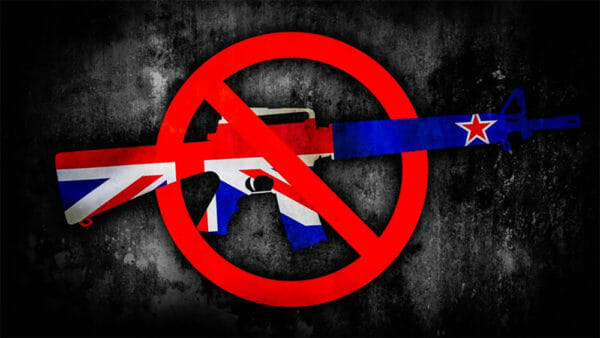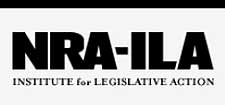Opinion

Fairfax, VA – -(Ammoland.com)- On July 22, New Zealand’s Labour-led government announced a wide array of new gun control proposals. The move came amidst the island nation’s ongoing program to confiscate commonly-owned semi-automatic firearmsfrom law-abiding gun owners that will last through December 20. The government’s most recent attack on gun owners is likely to engender further civil disobedience to the firearm confiscation scheme.
In March, following a high-profile shooting in Christchurch, New Zealand Prime Minister Jacinda Ardern moved to ban and confiscate several types of commonly-owned firearms. The “Arms (Prohibited Firearms, Magazines, and Parts) Amendment Regulations 2019” was enacted in early April and, according to a summary from the New Zealand Police, prohibits the following,
-
All semi-automatic firearms (including semi-automatic shotguns), but:
- Excluding rimfire rifles .22 calibre or less as long as they have a magazine (whether detachable or not) that holds 10 rounds or less; and
- Excluding semi-automatic shotguns that have a non-detachable, tubular magazine that holds 5 rounds or less.
-
Pump action shotguns that:
- Are capable of being used with a detachable magazine; or
- Have a non-detachable tubular magazine capable of holding more than 5 rounds.
Moreover, the legislation prohibits rifle magazines capable of holding more than 10 rounds of ammunition, shotgun magazines capable of holding more than 5 rounds of ammunition, and a host of semi-automatic firearm parts and accessories. Those in possession of the newly prohibited firearms are required to modify them to comply with the Arms Amendment or surrender them at a “collection event” for a predetermined compensation price.
Soon after enacting the new prohibition, some in law enforcement and the gun control community expressed concerns that the government had missed a crucial step in the civilian disarmament process – firearms registration. At present, prospective gun owners must acquire a firearms license. However, only pistols and a small subset of long guns are required to be registered.
This lack of a registry has frustrated the government’s ability to ensure compliance with their firearm confiscation effort. Addressing this issue, New Zealand Police Association President Chris Cahill complained in May, “We really have no idea how many of these firearms are out there in New Zealand… Which really points to how bad our firearms legislation has been, that we have let this get out of control.” Gun Control NZ co-founder Philippa Yasbek whined to the Washington Post, “These weapons are unlikely to be confiscated by police because they don’t know of their existence… These will become black-market weapons if their owners choose not to comply with the law and become criminals instead.”
According to a July 22 press release from Ardern and Minister of Police Stuart Nash, comprehensive firearms registration is the government’s top firearms legislative priority.
Given the government’s recent course of action, one might reasonably wonder how successful such a registration plan would be. Kiwi gun owners are now on notice that their government will confiscate firearms and that a registry would facilitate this task. Gun owners who register their firearms would possess their guns at the temporary pleasure of a state that has demonstrated a willingness to dispossess them of their property at a moment’s notice.
Ardern and Stuart’s message only provided the broad outlines of the government’s legislative proposals, noting that the full legislation would be released in August. The proposed restrictions encumber every aspect of gun ownership in New Zealand. The release stated that the legislation would do the following,
- Establish a register of firearms and licence holders to be rolled out over 5 years
- Tighten the rules to get and keep a firearms licence
- Tighten the rules for gun dealers to get and keep a licence
- Require licences to be renewed every five years
- Introduce a new system of warning flags so Police can intervene and seek improvement if they have concerns about a licence holder’s behaviour
- Prohibit visitors to New Zealand from buying a gun
- Establish a licensing system for shooting clubs and ranges for the first time
- Set up a new formal group to give independent firearms advice to Police, which will include people from within and outside the gun-owning community
- Provide for new controls on firearms advertising
- Require a licence to buy magazines, parts and ammunition
- Increase penalties and introduce new offences
- Enshrine in law that owning a firearm is a privilege and comes with an obligation to demonstrate a high level of safety and responsibility
Aside from the registration requirement, the most concerning proposal is the expansion of subjective government discretion in the firearm licensing process.
A document accompanying the press release titled, “Arms Amendment Bill: Q+As,” made clear just how intrusive the new licensing requirements could be. The Q+A stated that “Police will have a wider range of powers to intervene using a range of compliance and enforcement measures.” Moreover, the legislation will deputize medical officials to infringe gun rights. The document explained, “Health practitioners will have a new responsibility to notify Police if they believe a licence holder should not use a firearm.” The paper cited “gambling addiction” as a circumstance that could disqualify an individual from licensure.
The Q+A also elaborated on the “warning flags being built in to the licensing system.” The paper noted, “Behaviour that will raise flags includes encouraging or promoting violence, hatred or extremism…” In other words, the New Zealand government would be the arbiter of acceptable speech and political opinion and permit the exercise of firearms rights dependent upon an individual’s conformance with their dictates. A prospective or current firearms licensee might also earn a “warning flag” for the nebulous offense of “showing disregard for others property or land.”
In he and Ardern’s press release, Nash is quoted as stating, “Owning a gun is a privilege, not a right.” This is incorrect. The right to keep and bear arms is an extension of the natural right to self-defense and is therefore inherent to all people and not dependent upon a government for its existence. Governments may fail to recognize the right, but have no power to eliminate it.
Some American politicians share Nash’s view of gun rights and many share Ardern’s zeal to control her population through firearms restrictions. Americans should pay careful attention to the New Zealand government’s actions as it provides important insight into the goals and mindset of the Second Amendment’s domestic political adversaries.

About:
Established in 1975, the Institute for Legislative Action (ILA) is the “lobbying” arm of the National Rifle Association of America. ILA is responsible for preserving the right of all law-abiding individuals in the legislative, political, and legal arenas, to purchase, possess and use firearms for legitimate purposes as guaranteed by the Second Amendment to the U.S. Constitution. Visit: www.nra.org
